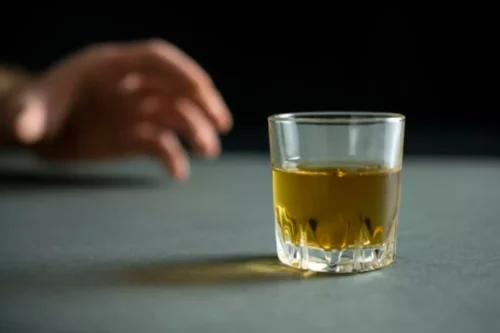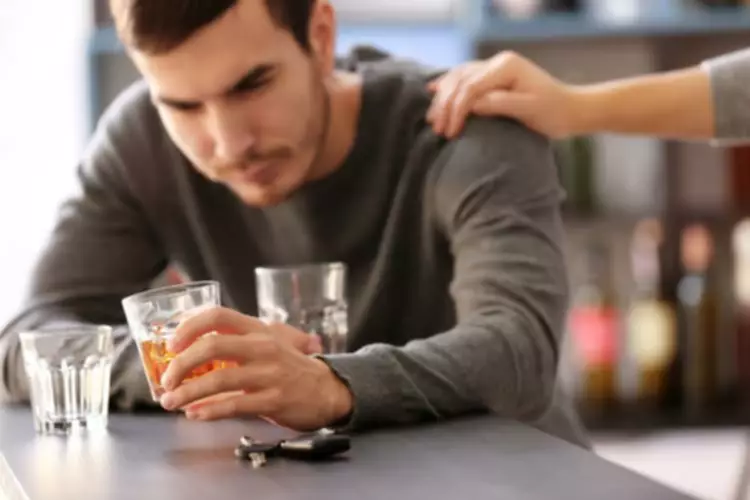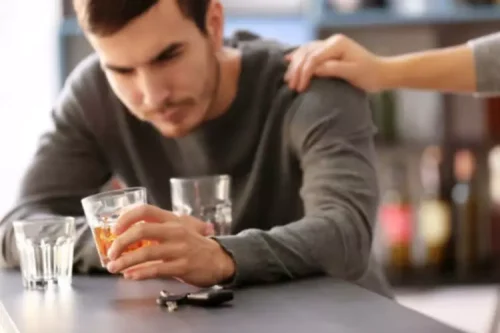
Make sure your spouse agrees with the rules and is also prepared to enforce them. There are ways to help your teen cope with the pressures to drink alcohol and make better choices. Overall,up to 12%of young people ages 12 to 20 years old meet the criteria for a diagnosis of alcohol abuse or dependence. About12%of teen males and3%of teen females are chronic heavy drinkers in high school and continue to drink heavily as adults. Without treatment, youth who drink excessively as teenagers are more likely to become problem drinkers than adults.

More in Health

Depending on the severity of alcohol misuse, the youth’s prognosis can be significantly improved by =https://ecosoberhouse.com/ interventions ranging from involving the teen’s parents to having the teen participate in Alcoholics Anonymous (AA) or more intensive treatments. While it is common for people to try alcohol in adolescence, alcohol use in teens can be detrimental to health and may affect brain development and mental health. Young people who drink alcohol are more likely to engage in risky behaviors that can lead to injuries and other health conditions. They’re also more likely to experience social, academic, and legal issues. In a recent editorial in The BMJ, a trio of scientists pointed out that there are three periods in life when the brain goes through major changes and is particularly vulnerable to the effects of alcohol.
Talking to teenagers about drinking
But alcohol affects people’s ability to think quickly, make good judgments and avoid dangerous situations or risky behaviour. One of the effects of excessive alcohol use is that it interferes with vitamin B absorption, which impacts the brain’s function. In 2018, 14% of drivers who lost their lives on Victorian roads were aged between 18-25, and 75% were involved in crashes that occurred at high alcohol times (times of the day or week where fatal crashes are 10 times more likely to involve alcohol). Car accidents and drink driving are a leading cause of death for young adults.
Figure 2. Model depicting how childhood trauma may lead to subsequent high-risk drinking.
According to the National Institute on Alcohol Abuse and Alcoholism (NIAAA), about 3.4% of US teenagers ages 12 to 17 have AUD. Preparing to talk with your child You can make difficult conversations like this easier by learning more about the effects and risks of alcohol. People will often experience a hangover after a binge drinking session. You can encourage safer drinking behaviour and create a space where the young teenage alcoholism person feels safe to come to you about any questions.

- To date, a handful of large-scale multisite studies are being conducted to gain insight into the consequences of adolescents transitioning into and out of substance use.
- Desperate to fit in and be accepted, kids are much more likely to drink when their friends drink.
- ” and given seven response options (mostly A’s, mostly B’s, mostly C’s, mostly D’s, mostly F’s, none of these grades, not sure).
- If you do have any of these symptoms, then alcohol may already be a cause for concern, and a conversation about alcohol use with a professional is recommended.
- Let the young person know that if they, or someone else, is drunk or high, they can’t give consent.
It’s important to remain calm when confronting your teen, and only do so when everyone is sober. Explain your concerns and make it clear that your fears come from a place of love. Your child needs to feel you are supportive and that they can confide in you, since underage drinking is often triggered by other problem areas in their life.
- Talk with people you trust about your concerns and how you are feeling.
- Functional MRI studies further suggested that adolescents with histories of heavy drinking showed aberrant patterns of activation in response to cognitively challenging tasks,41,42 including tasks of working memory and inhibition.
- As disturbing as it can be to find out that your child or teen has been drinking, it’s important to remember that many teens try alcohol at some point, but that doesn’t mean they automatically have an abuse problem.
- In addition, the decrease in underage drinking rates hasstalledsince 2015.
- Overall, as of the most recent data available about underage drinking statistics in 2017,19.7%of all underage people aged 12 to 20 reported drinking in the past 30 days.
- On top of that, there are also emotional and behavioral consequences to underage drinking.
Setting Healthy Boundaries in Relationships
People who have overused alcohol may stagger, lose their coordination, and slur their speech. Depending on the person, intoxication can make someone very friendly and talkative or very aggressive and angry. Reaction times are slowed dramatically — which is why people are told not to drink and drive. People who are intoxicated may think they’re moving properly when they’re not. Poverty and neighborhood violence are community risk factors for teens alcoholism to develop alcohol use disorder.

